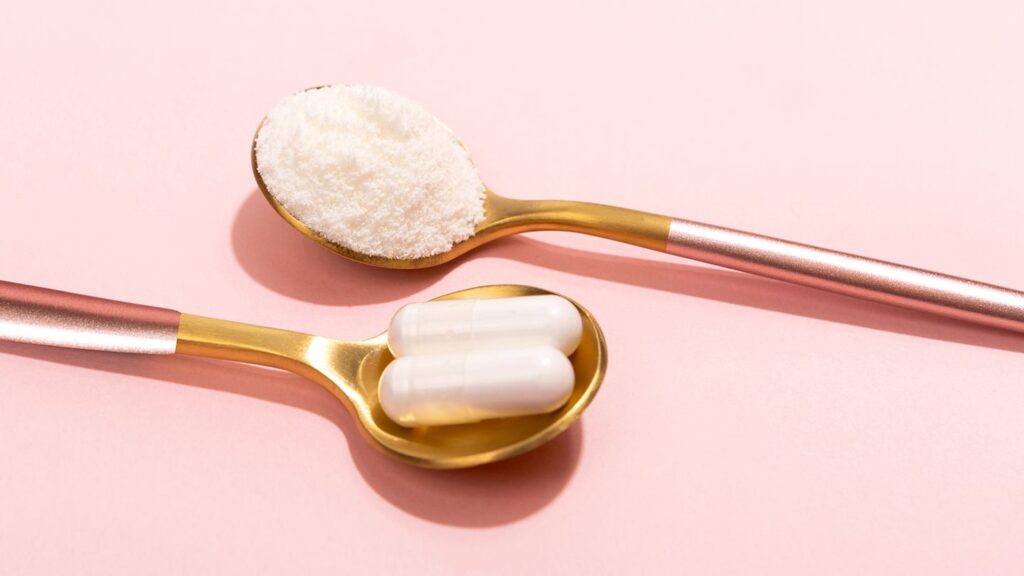The body’s most prevalent protein is collagen. A protein with a fiber-like structure that holds your tissues together, collagen can be found in abundance in your skin, muscles, tendons, and cartilage. What it does is allow you to stretch while still keeping your skin firm. We all know that as we get older, our bodies create less collagen, which leads to wrinkles, ligament damage, brittle joints, and brittle nails. But this can happen even faster if you smoke, suntan frequently, consume a lot of alcohol, or don’t get enough sleep.
Dermatologists and doctors alike have found that applying collagen on the surface of the skin doesn’t really do anything; thus, it’s no longer included in anti-aging skin creams and serums. Hydrolyzed and peptide collagen is more easily absorbed by the body; thus, products like collagen protein powder and bits are more effective at firming up the skin and protecting bones and ligaments.
According to the Harvard School of Public Health, several collagen products have been found to contain heavy metals in the supplement market in the United States. Brands have been trying to produce and market this hero ingredient as soon and cheaply as possible since it was proven to truly help the body appear and feel young. As a result, it’s always ideal for sticking with a brand you know and trust to provide you with high-quality health and wellness items.
Consuming excessive amounts of red meat can have long-term health consequences, which may outweigh the short-term benefits of having smoother skin.
When we eat collagen, our bodies break it down into amino acids, which are then transported throughout the body. If you want to ensure that your body has enough of the specialized protein that keeps your body working smoothly, you should eat enough collagen. In addition, nutrients like zinc and vitamin C are necessary for collagen formation, so including these in your diet will assist your collagen supplements to work even harder for you!
This means you can move more freely because collagen helps to maintain healthy joint tissue. In addition, it keeps your hair, skin, and nails healthy, strong, and beautiful. For athletes and gym-goers alike, collagen is a great supplement since it aids in muscle recovery.
It can enhance skin elasticity and indications of aging. Some studies have found that taking collagen supplements for several months can be beneficial. Consuming collagen can reduce hip, back, and knee discomfort by increasing bone density, according to other studies. Many of these studies, however, are tiny and sponsored by the company that provides the product, raising the risk of bias in the results.
According to a 2019 research review published in the Journal of Drugs in Dermatology, some of these advantages may be feasible. Collagen has been shown in double-blind, placebo-controlled studies to improve skin elasticity, collagen density, and overall hydration, according to the research.
When it comes to a large molecule like natural collagen, absorption might be a challenge. More easily penetrate past the intestinal barrier and into the bloodstream are smaller peptides. Theoretically, this should be the ability of all good supplements. In theory, ingested collagen peptides can be used in places of the body that need the greatest healing.









